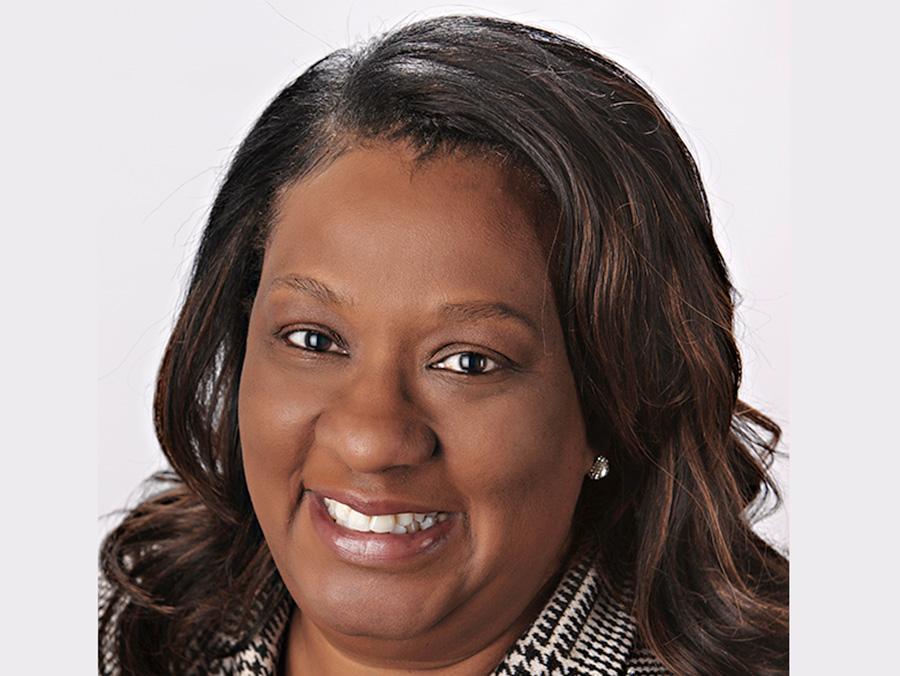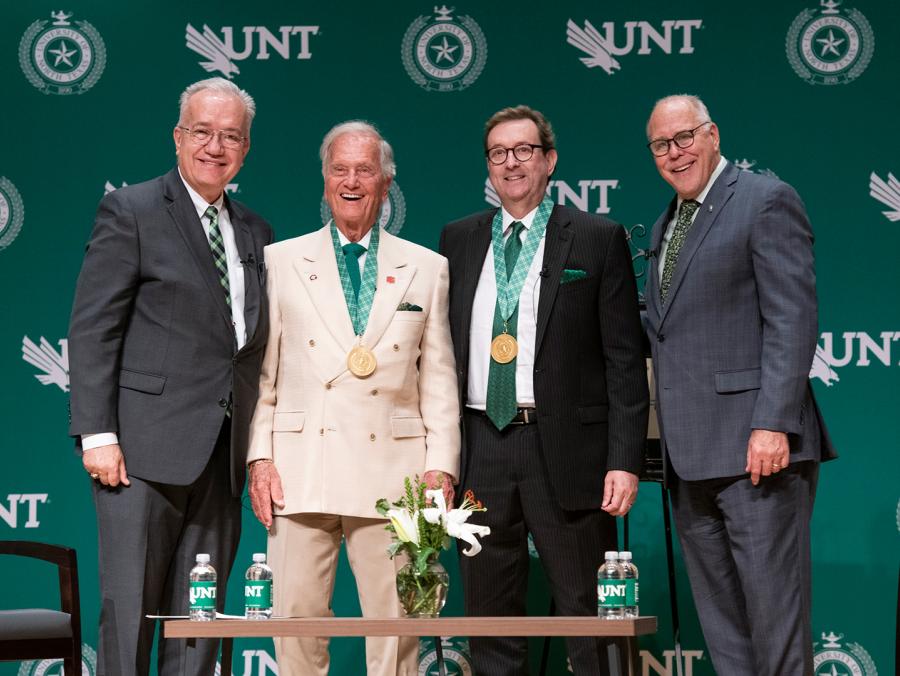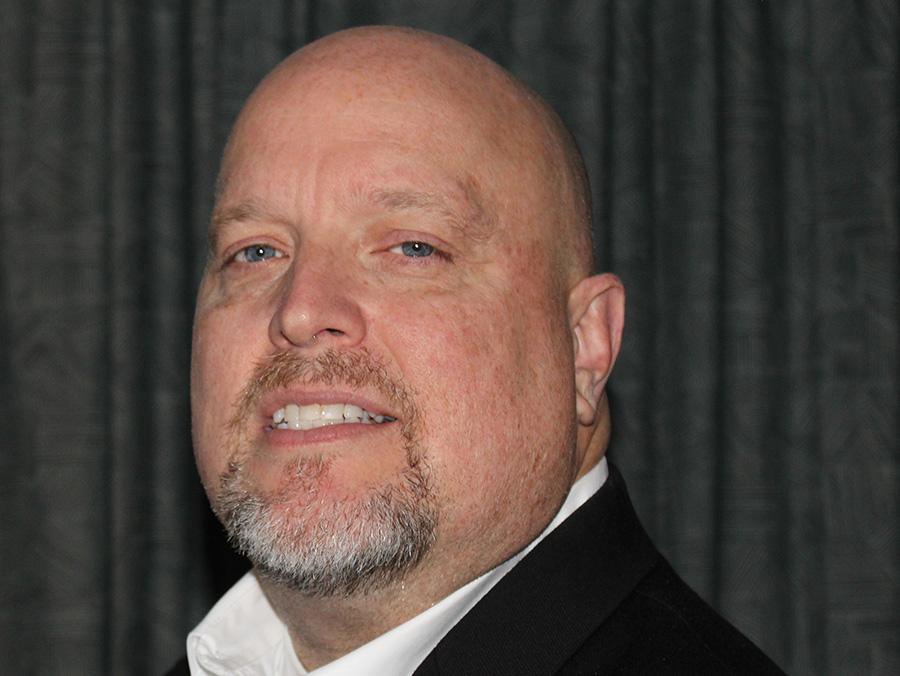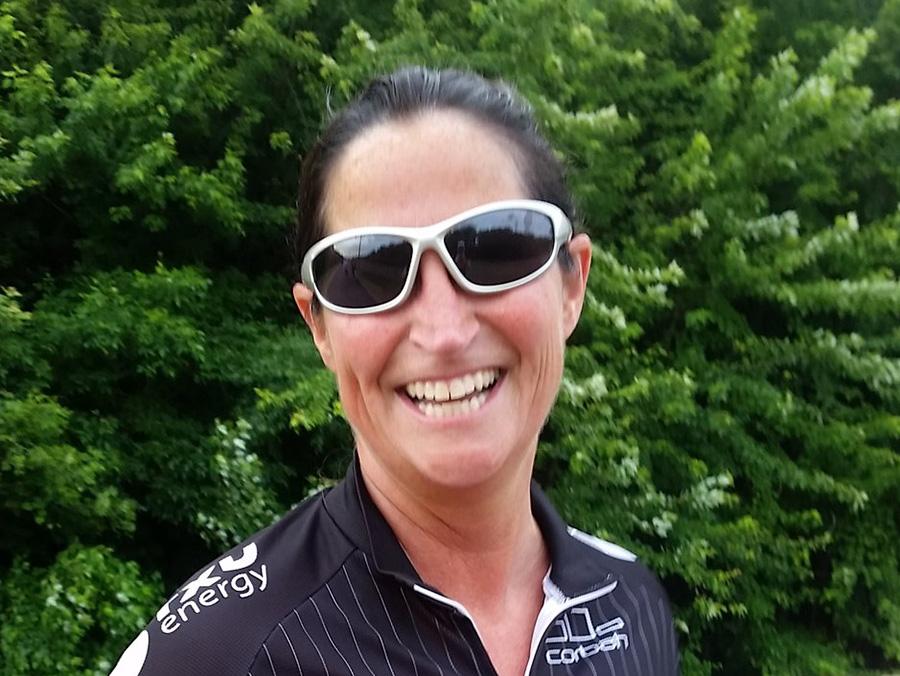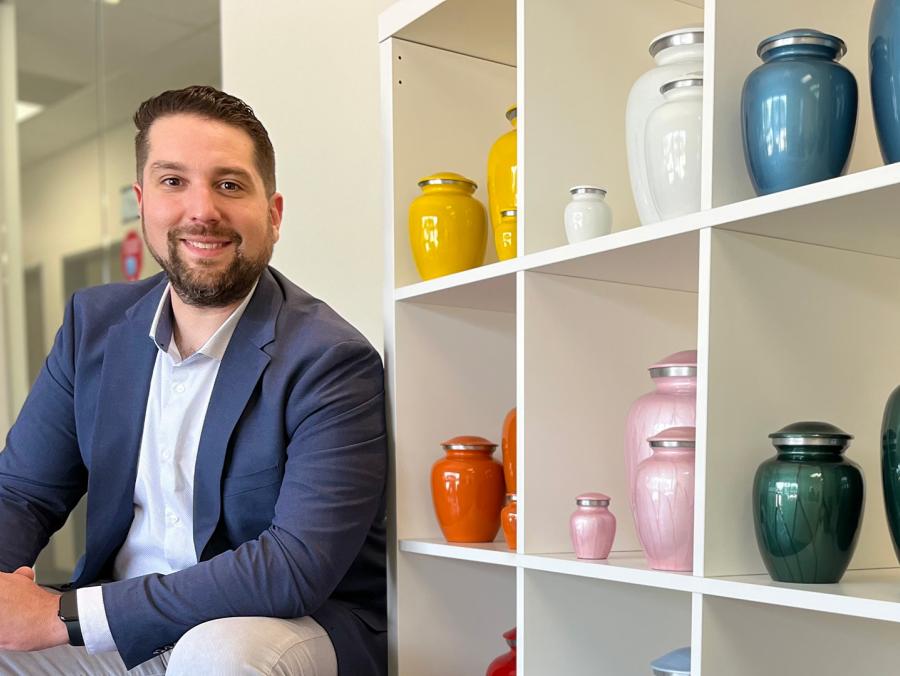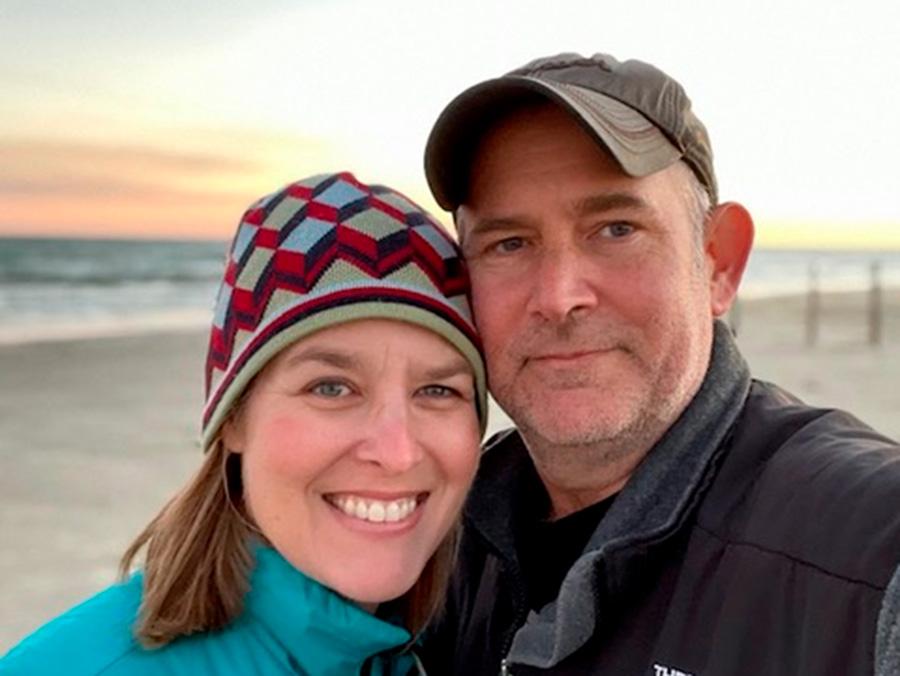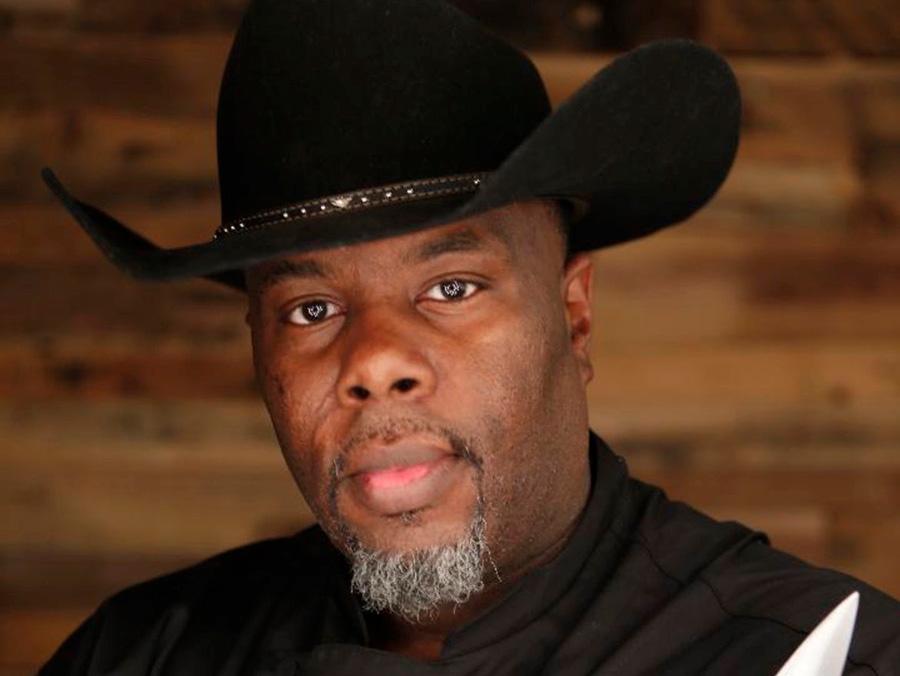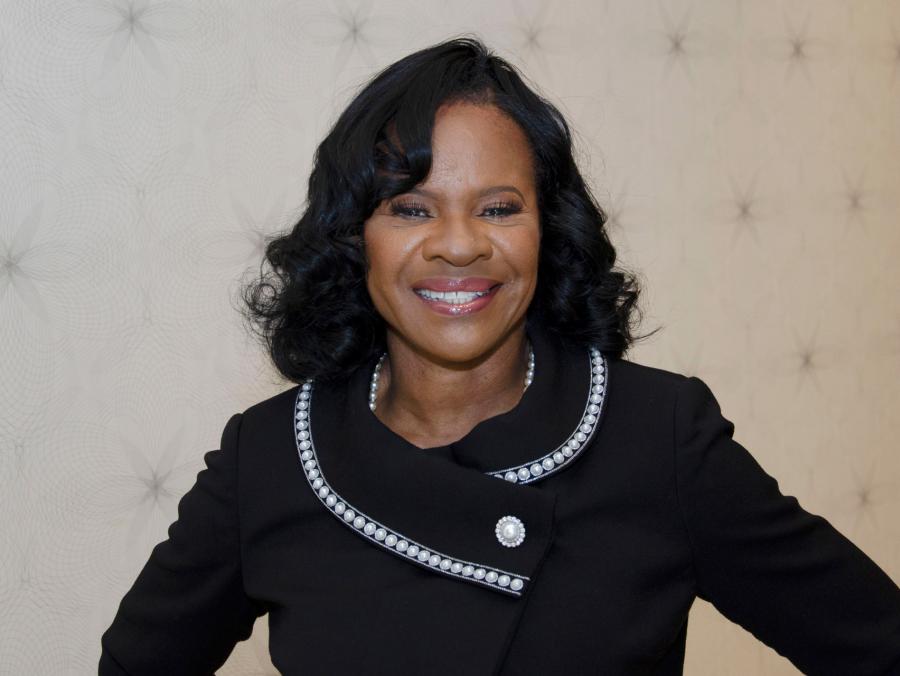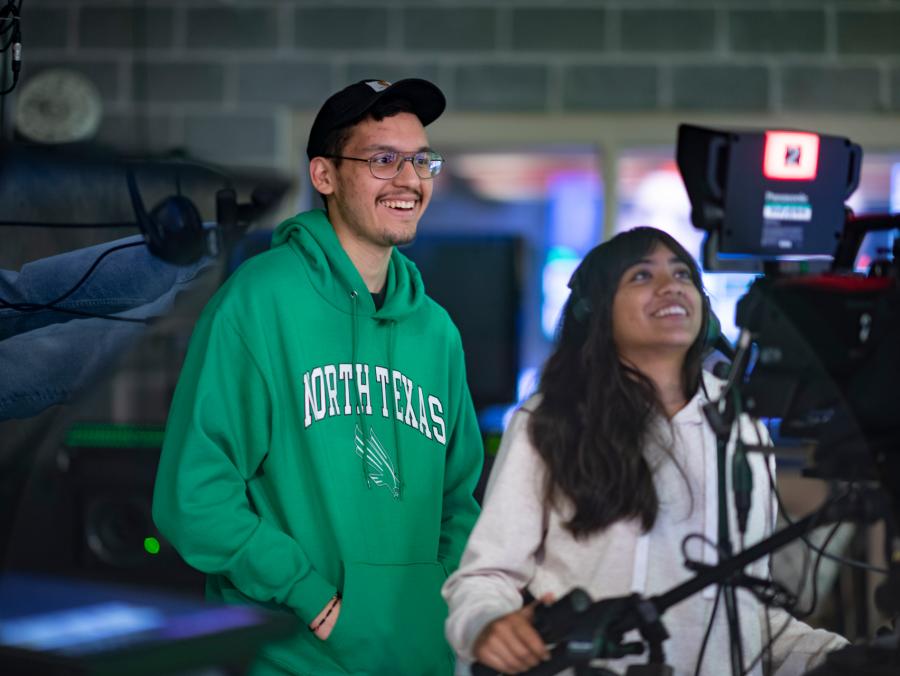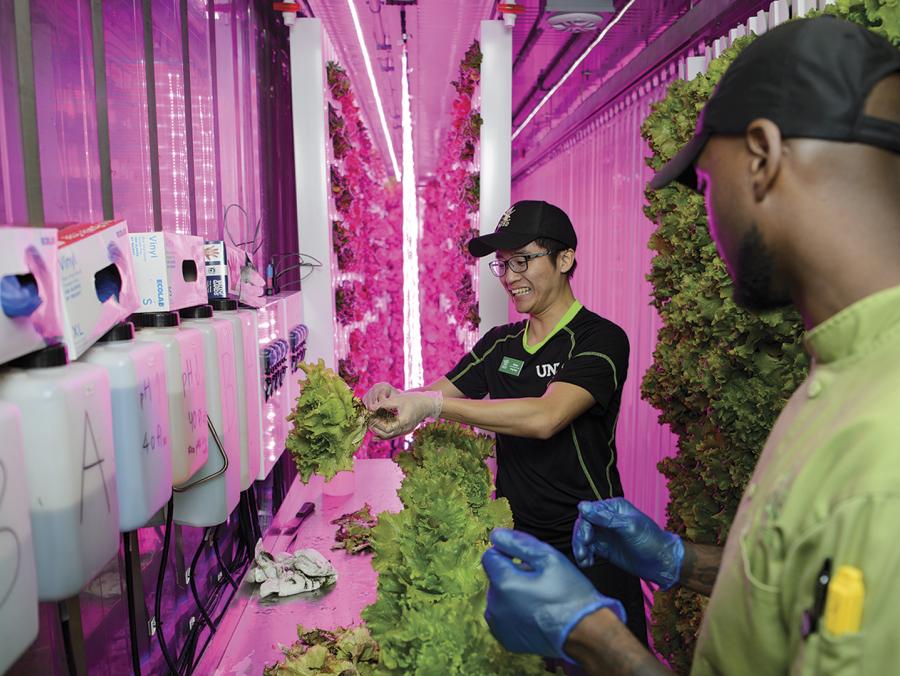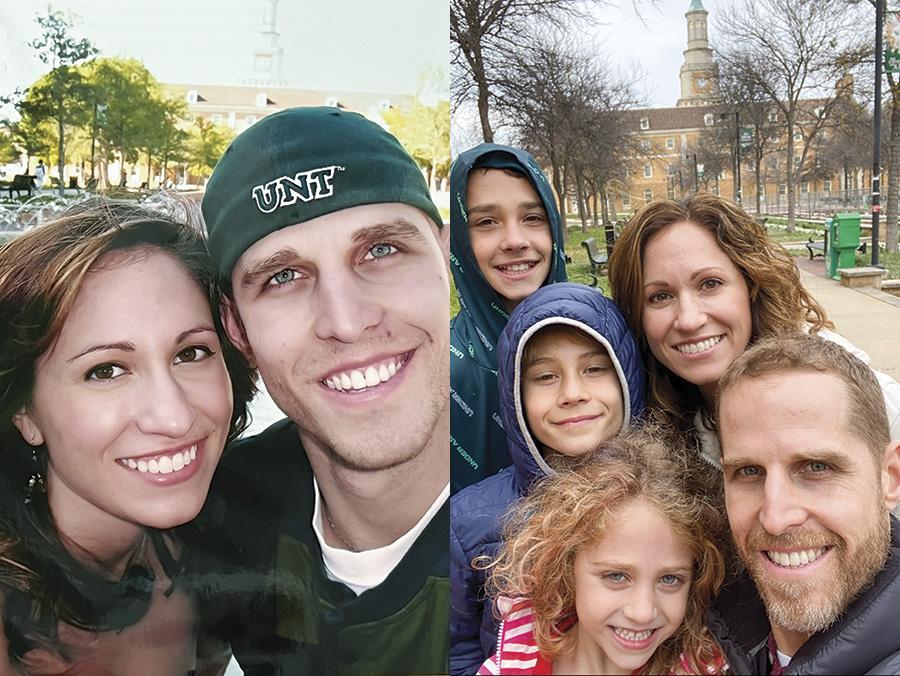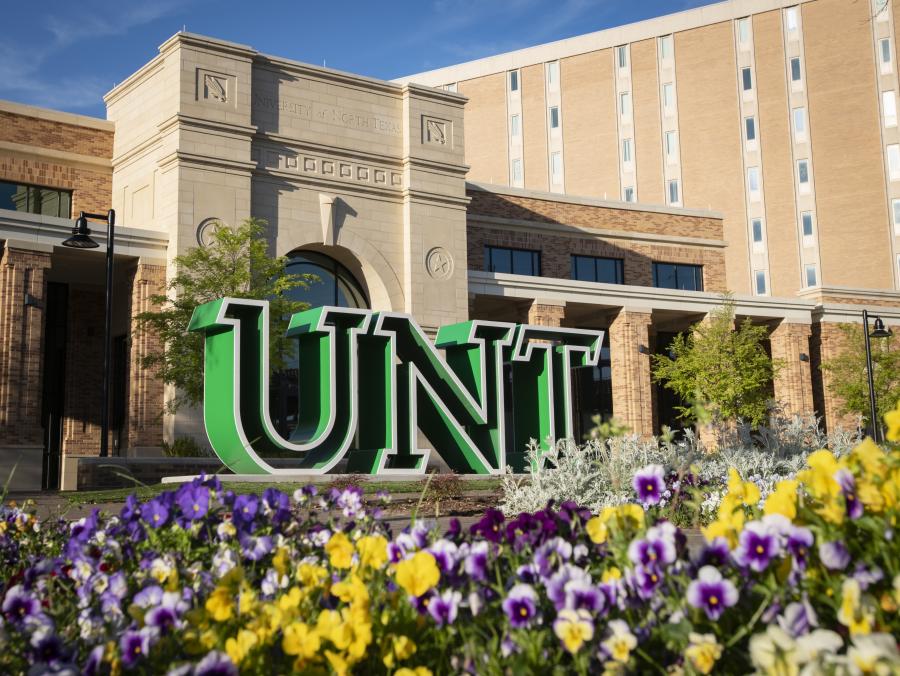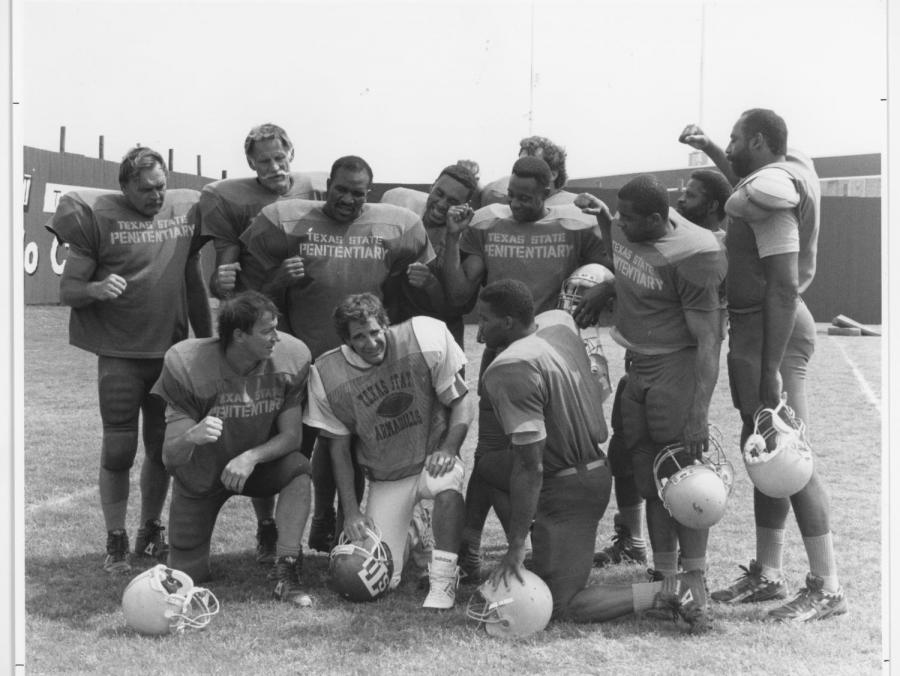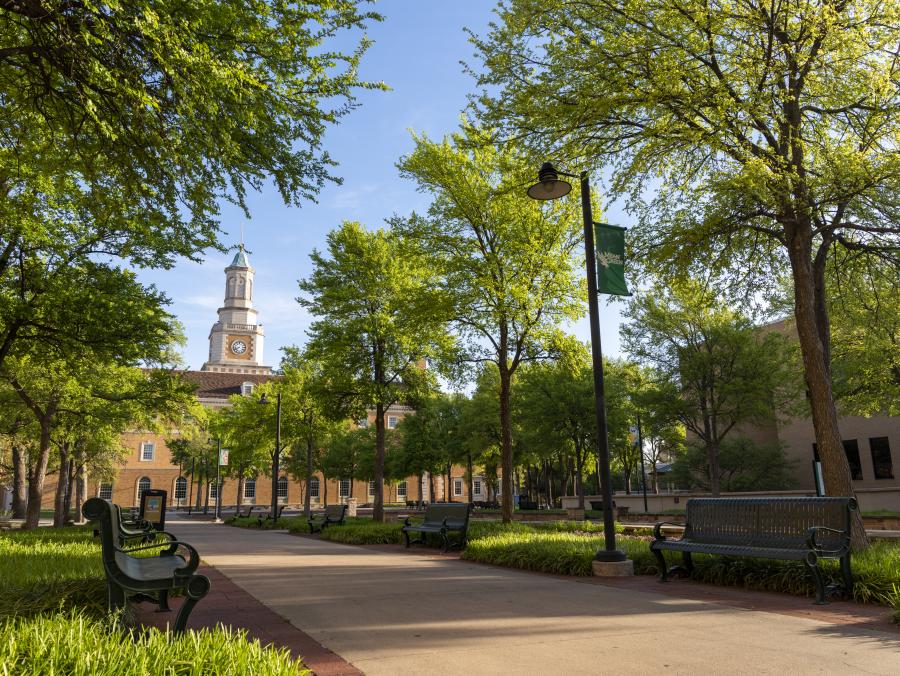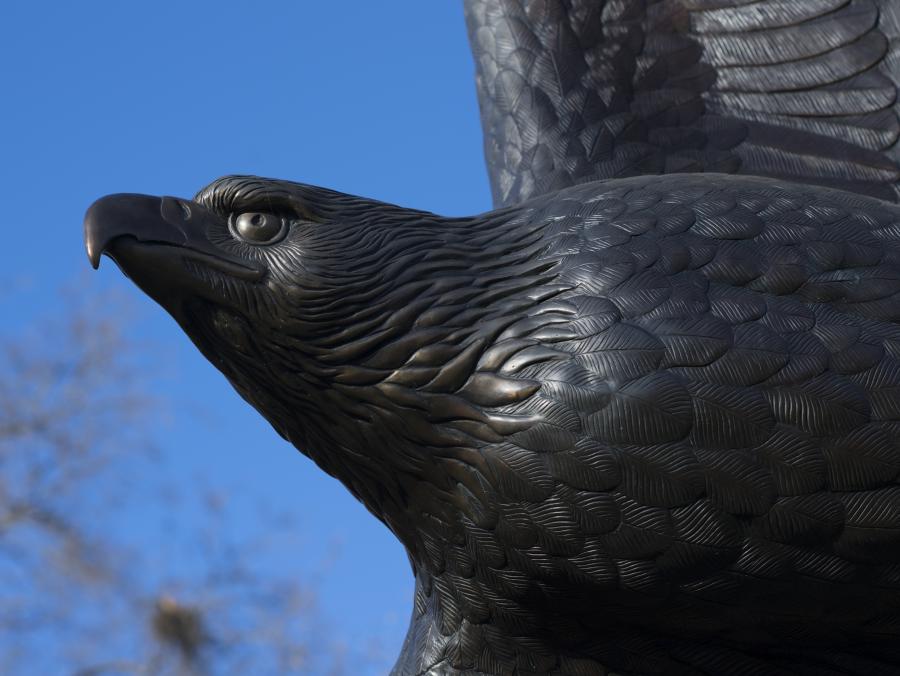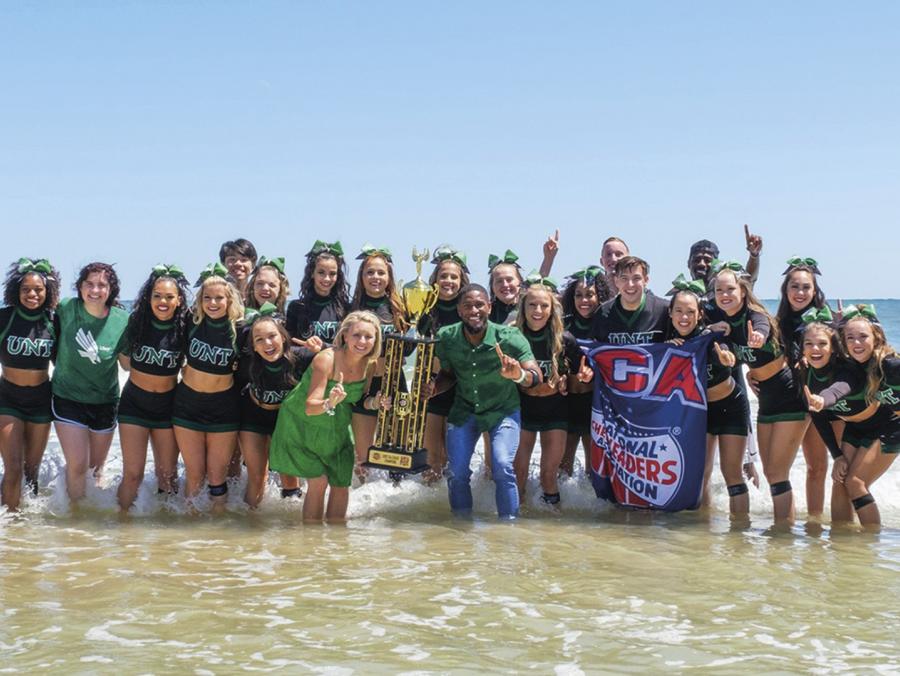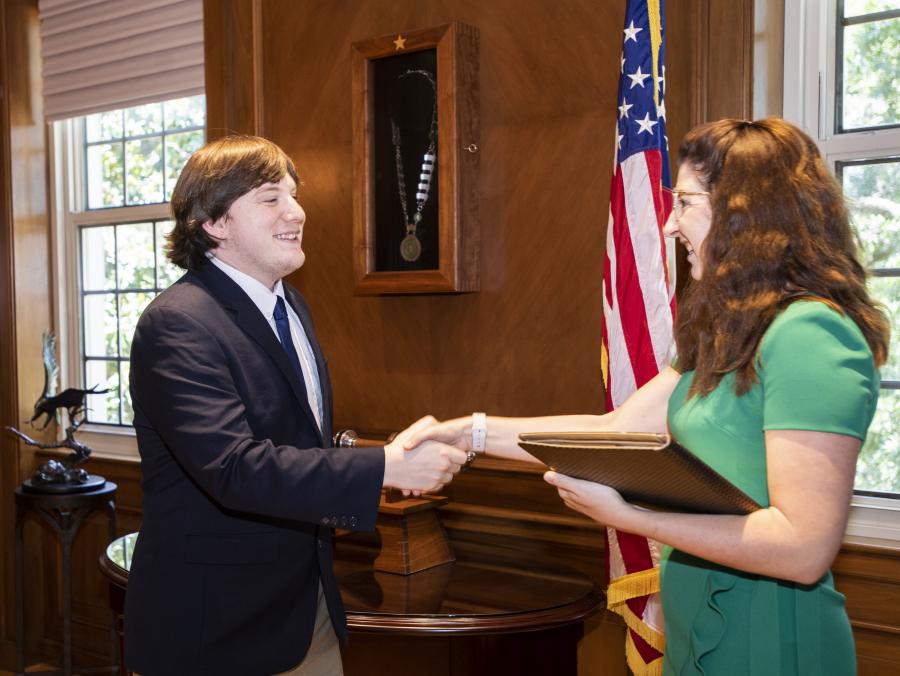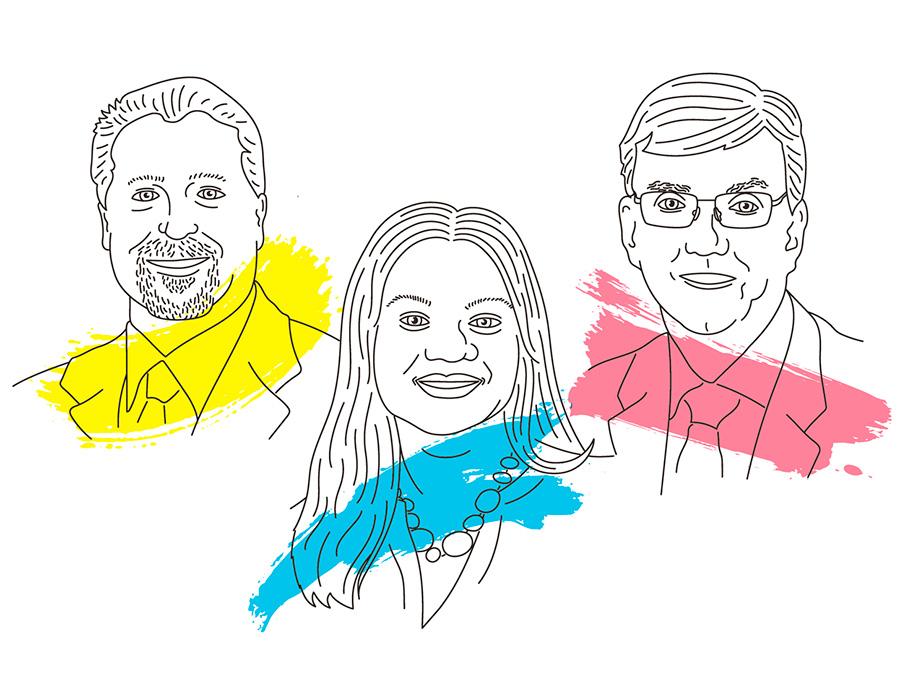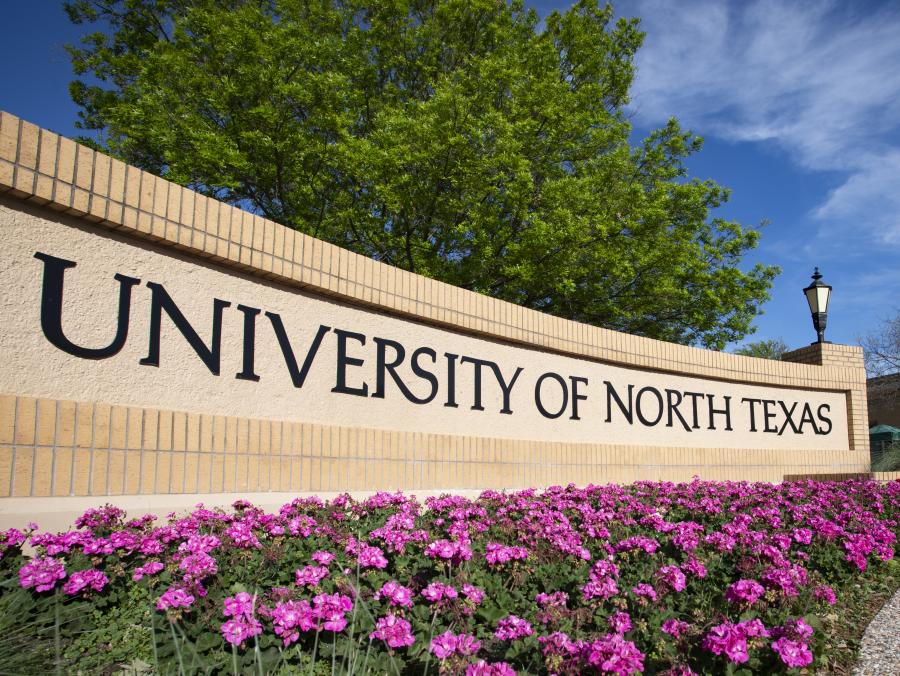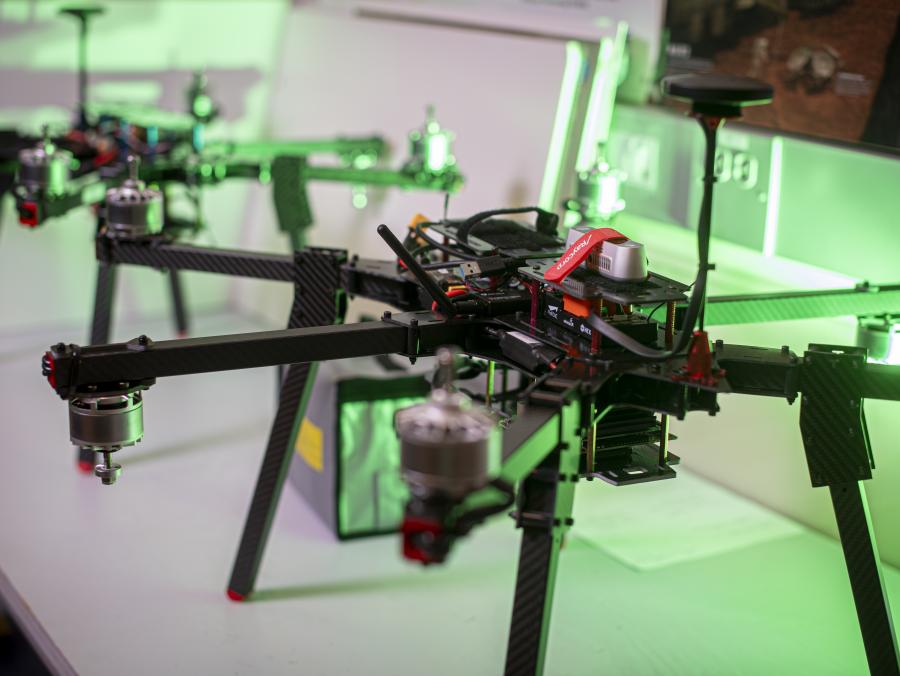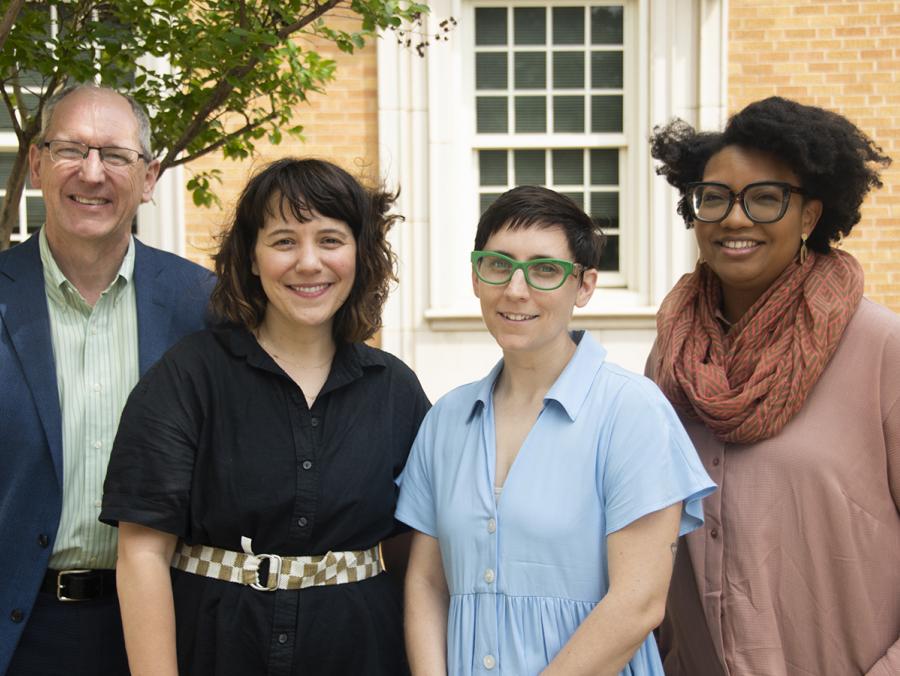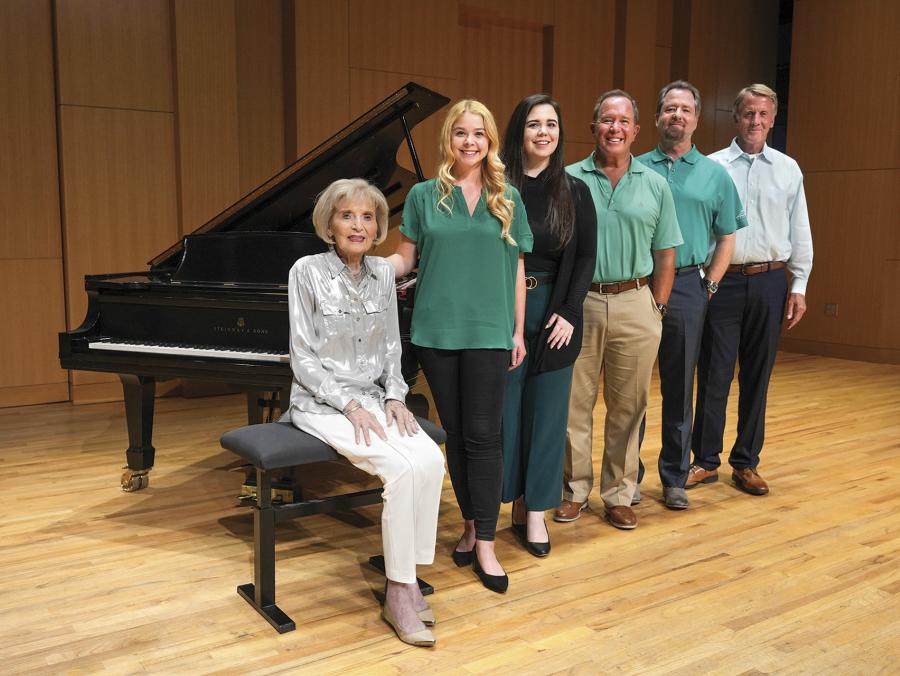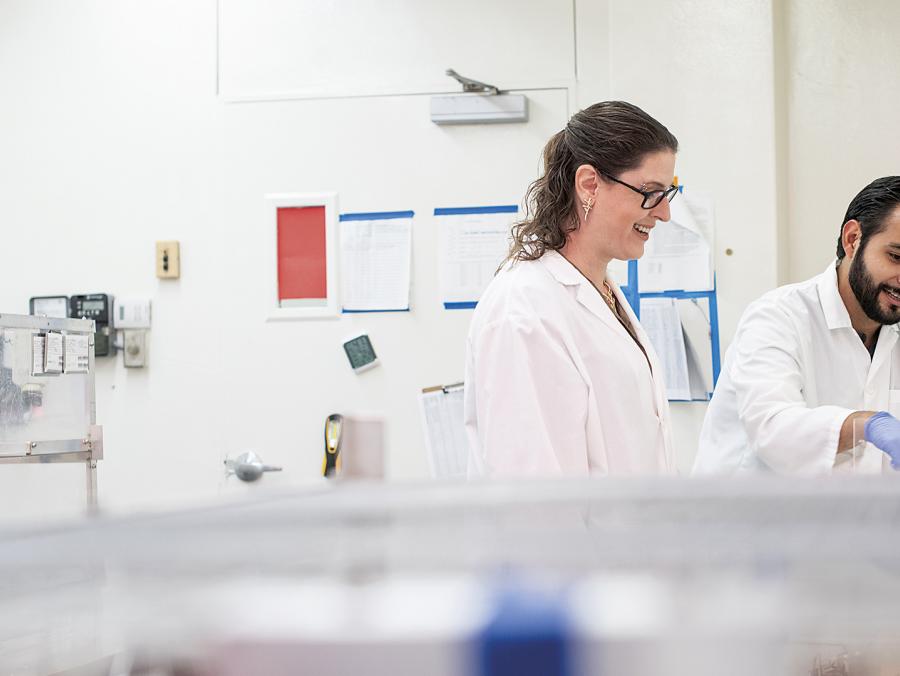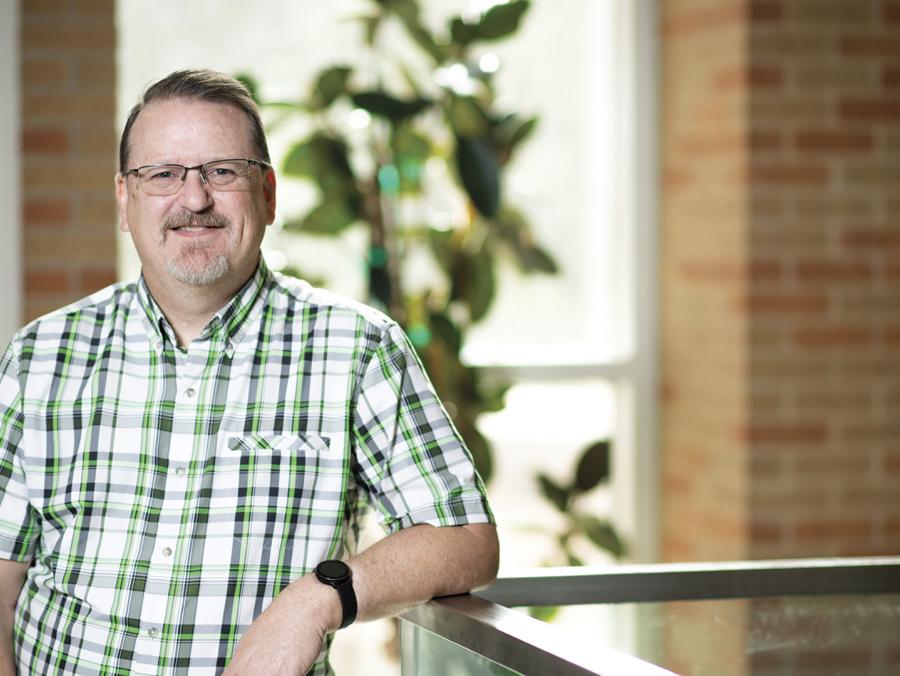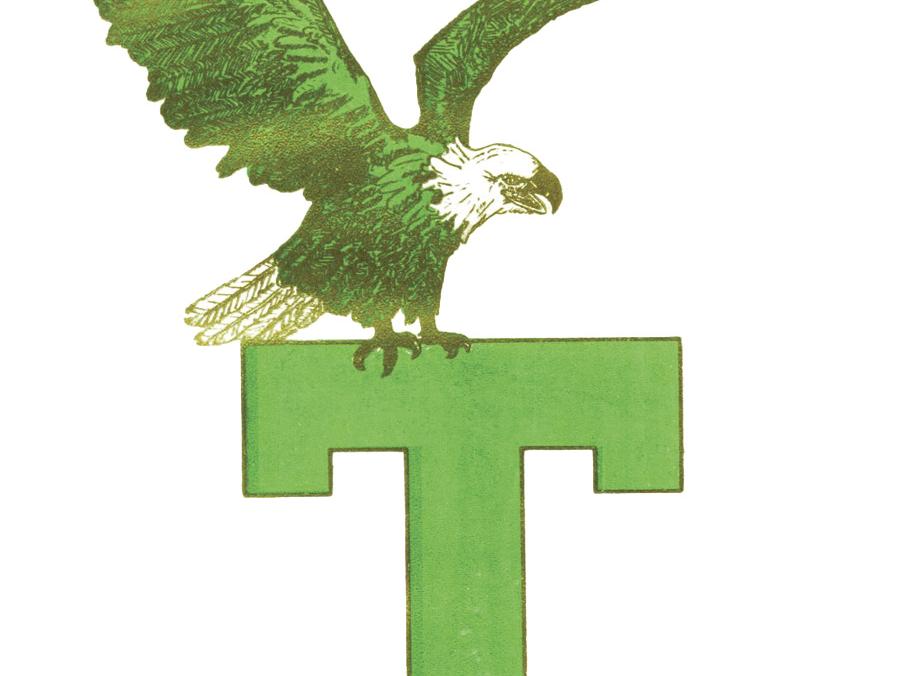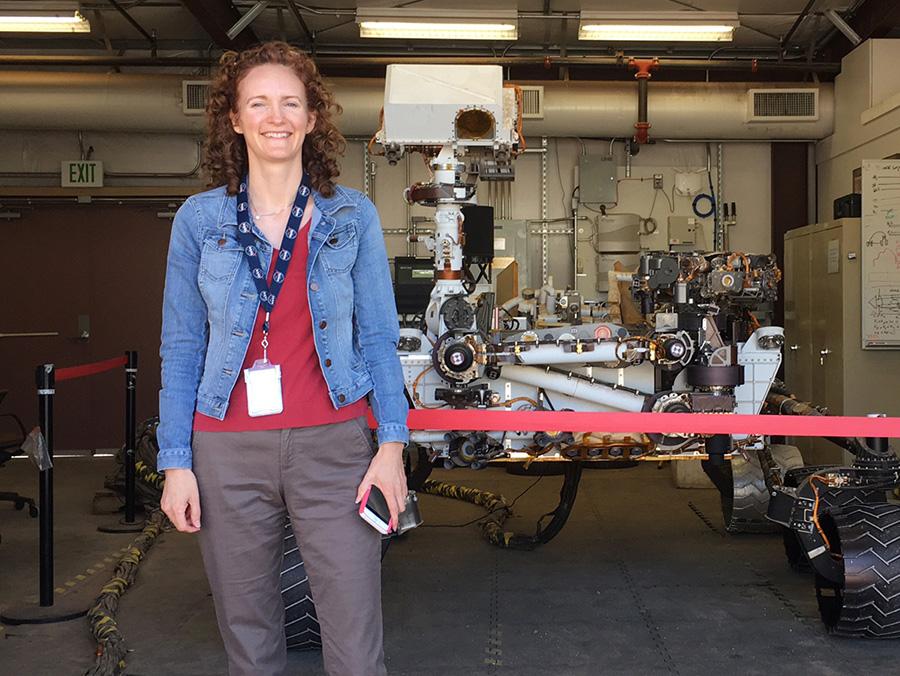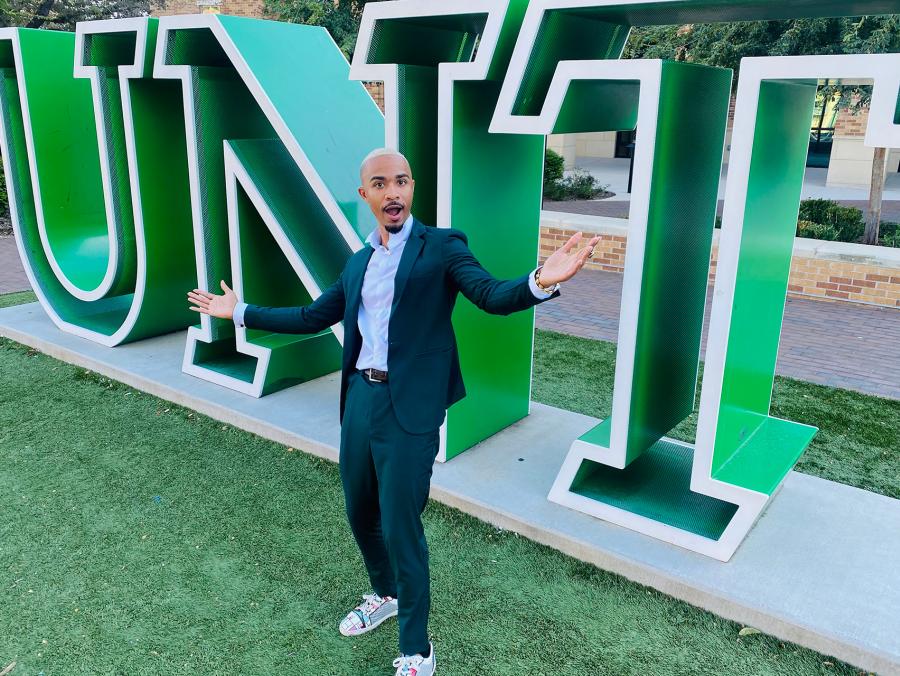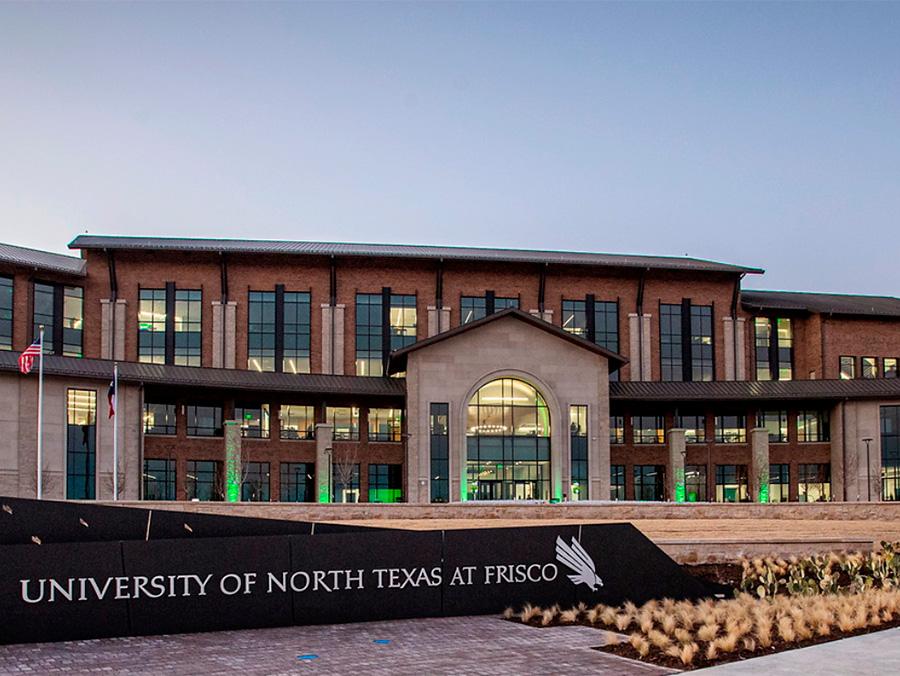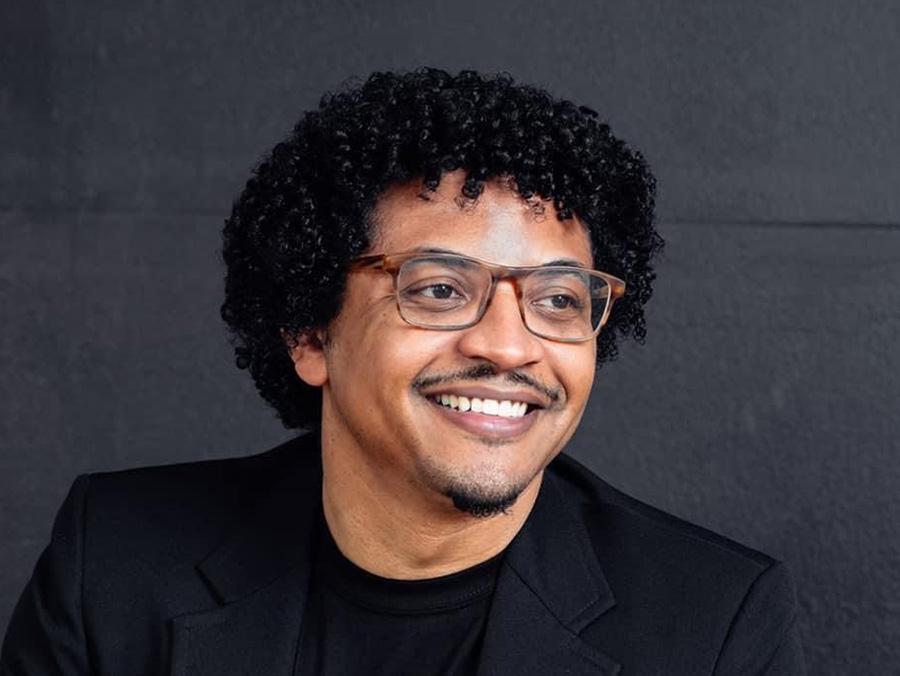he decision about Lauryn Woolfolk's future came wrapped in a standard envelope. As she tore it open and began reading the letter, her grandma let out a holler of excitement as soon as Woolfolk read the words, "You have been accepted."
Woolfolk's reaction took a few more seconds to register. Finally, she lifted her arms above her head in celebration as her family members continued their gleeful screams. And then came the tears of joy and hugs as the news really sank in -- she was going to UNT for a true university experience.
Woolfolk, who has an intellectual disability, had almost given up on college.
She first tried a community college after graduating from Cedar Hill High School in 2019. While there, she struggled and found it challenging to comprehend class expectations.
"I would just sit there and look at the paper, not understanding what to do," Woolfolk recalls.
She was capable of the learning, but she needed one-on-one guidance and a dedicated support system to have greater success in the classroom. Woolfolk and her family looked into collegiate programs for students with ID. The options were few -- and even fewer if Woolfolk wanted to live on campus and be integrated with the entire university community.
At the time, the closest program was hours away at Texas A&M University in College Station, and others were located outside Texas, even farther from the family's home in Cedar Hill.
"I didn't want to be so far if I needed help from my family," Woolfolk says.
Her college dreams went on hold until her grandma discovered a new program being developed at UNT.
UNT ELEVAR, which stands for Empower, Learn, Excel, enVision, Advance and Rise, officially debuted in Fall 2021 as the first inclusive post-secondary program for students with intellectual disabilities in the North Texas region.
It was the option Woolfolk had been looking for, and this fall she's joined eight other students in ELEVAR's second cohort.
"I am so excited because this program is going to help me be better and do better," Woolfolk says. "If I had to go back to another school that doesn't have the support I need, it wouldn't work."
Those sentiments are similar to the ones felt by her ELEVAR classmates and their families. College was a path they never imagined they could take, but the tide is changing.
As one of the university's newest programs, ELEVAR is giving educational access to a population that has been historically excluded from higher education, and it's uniting faculty and staff across campus to bring the students well-rounded support and experiences.
It's part of UNT's mission to give all students the inclusive and welcoming space they need to thrive -- through programs and initiatives that not only focus on academics, but also on career readiness, financial literacy, mental and physical health, and social and emotional well-being.

Inclusive education for students with disabilities is widely available in pre-kindergarten through 12th grade, but once students age out of high school programs, opportunities to continue education drop significantly. Lack of educational access can build disparities in the workforce as well as decrease the quality of life for these individuals.
The state of Texas has the second-highest population of individuals with disabilities in the U.S. North Texas K-12 public and charter schools serve nearly 23% of the state's students with a primary diagnosis of ID, yet before ELEVAR there was no inclusive post-secondary option in the region for this population.
That reality didn't sit well with Brenda Barrio ('06, '08 M.S., '13 Ph.D.). The three-time UNT College of Education alumna has spent her career as a champion for students with disabilities, especially those from underrepresented communities. She started her career as a bilingual special education teacher in Denton ISD and, for almost 10 years, she has served as a special education professor in higher education. In 2019, when a position opened up in UNT's Department of Educational Psychology, it seemed like kismet. She was thrilled at an opportunity to come back to her alma mater, but if she were to return, she had a very specific goal in mind.
"In my interview, I shared my plan to create an inclusive program for individuals with intellectual disabilities here on campus," Barrio says. "I knew it was ambitious, but the need is great for this population. They deserve the chance to go to college, pursue a career of their choice and live independent lives."
Barrio started a similar program for students with ID at Washington State University, but at UNT she hoped to build a more university-wide program, giving these individuals access to the comprehensive academic options the university had to offer. The efforts would extend off campus by partnering with local school districts to offer training for special education professionals and resources for their middle and high school students with ID.
To set things in motion, Barrio gathered expertise from across campus, including that of faculty members Melissa Savage and Jean Keller in the College of Education; Chandra Carey, Brandi Levingston and Elias Mpofu in the College of Health and Public Service; and Lucy Gafford, director of the UNT Workplace Inclusion and Sustainable Employment program (UNT WISE).
In 2020, the faculty group earned a $2 million seed grant from the U.S. Department of Education to officially begin development of ELEVAR, which also means "lift, soar and rise" in Spanish, a nod to the program's goal of empowering young adults with ID and UNT's designation as a Hispanic-Serving and Minority-Serving Institution.
ELEVAR welcomed its inaugural students in Fall 2021.
The group of five students, affectionately dubbed the "fab five," were able to take classes in subjects of their choice, live together in a residence hall, work campus jobs and plan for their future careers. In its first year, the influence of the program is already visible both in the personal gains of its students and engagement from the UNT community and beyond.
"They really grew throughout the entire year from becoming more independent to being great advocates for themselves," Barrio says. "They've even established their own identity within the university and got involved in student organizations and campus life in general."
Alex Bartolo and other ELEVAR students joined the Disney Club along with traditional UNT students. The student-led group gathers weekly for movie screenings and activities. As an avid Pixar fan, Bartolo can name all the studio's movies in order of their release dates. Those who spend any amount of time with him will probably be treated to his impressions of characters from Veggie Tales, SpongeBob SquarePants and other shows.
One day, Bartolo hopes to become a professional voice actor and he's beginning his preparation for that career by taking classes in UNT's Department of Media Arts, including a voice acting class this fall.
"People who do animated movies are not appreciated enough," Bartolo says. "Maybe one day I can be the next Rob Paulsen, who played Pinky in Animaniacs and Pinky and the Brain."
Lourdes Rahn's son Noah is part of ELEVAR's first cohort, too. The changes she's seen in him over the last year have been significant.
"At first, he was a little leery," Rahn says. "He would still use me as his 'dial a friend' when he needed help, but gradually the calls became fewer and fewer and he flourished in a way I've never seen before."
Rahn says Noah has enjoyed being part of the UNT community -- attending sporting events, working as the manager of the men's basketball team and getting involved in student activities -- so much so that he didn't want to come home during school breaks.
In addition to the growth in his independence and confidence, Noah, who has apraxia of speech, has made tremendous improvements in his verbal and written communication. Before, his texts might be fragmented and difficult to decipher, but now he communicates in full sentences and is able to better articulate what he wants to say.
His fellow ELEVAR classmates have become friends and have encouraged him to try things he never thought possible.
"He came home this summer and was insistent that he wanted to learn to drive," Rahn says. "That's a direct influence of seeing that some of his other ELEVAR classmates were driving. He told me: 'Oh my gosh, I didn't think I could, but if they can do it, I can do it.'"
An added benefit Barrio had hoped would come from ELEVAR is taking root -- increased inclusivity in the broader campus community and even outside Denton.
Last fall, the UNT ELEVAR Peer Ally group launched with nearly 60 students signed up to participate in the first month. Kenzie Duwe, an undergraduate student in special education, reached out to Barrio about making it an official student organization, which took place in February. The student-led group facilitates social activities for ELEVAR and traditional students each week.
The impact of ELEVAR on campus really hit home for Barrio in May during the program's end of the year celebration. UNT faculty and staff, along with ELEVAR students and their families, filled a conference room in Matthews Hall to reflect on the inaugural year.
"The number of people that showed up from across campus -- it was just incredible," Barrio says. "That really demonstrates how we aren't a siloed program. We are connected with people and programs across the university."
Those connections have reached beyond campus. Through ELEVAR's collaborations with school districts in Corsicana, Decatur, Denton, Fort Worth and Irving, it's making professional development in special education more accessible through monthly virtual education sessions and an annual summer institute. UNT pre-service teachers in the College of Education also lead virtual coaching sessions about life and career planning for middle and high school students with ID from these districts.
Stories about ELEVAR on local NBC and ABC affiliate television stations as well as the national NBC News have helped the program earn recognition in communities across the state and nation. The media coverage has prompted other Texas colleges and universities to inquire with Barrio about how they can start similar programs at their institutions. It's also caught the attention of parents who have children with ID.
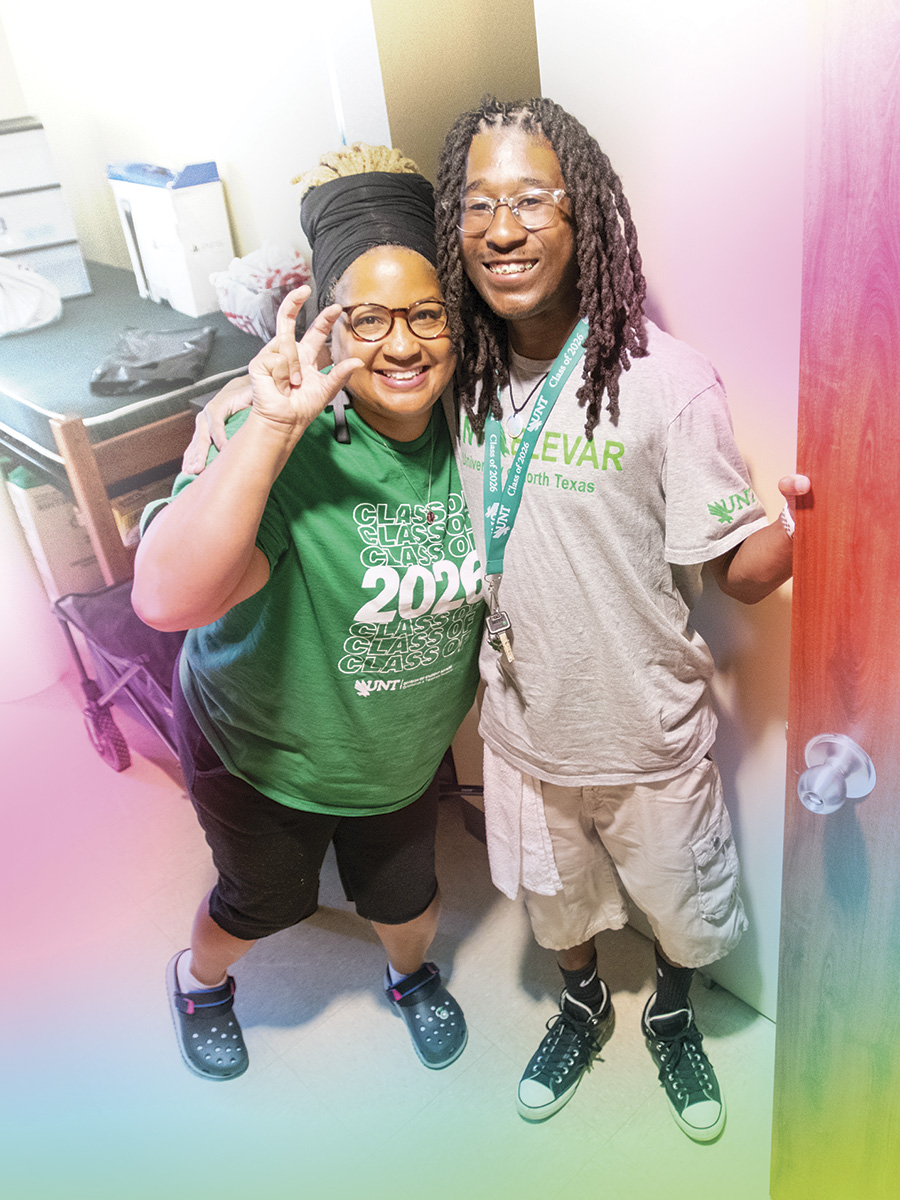
Traci Walker heard about ELEVAR from a story NBC DFW aired in February 2021. It gave her hope that her son Jaylen could fulfill his goal of going to college and eventually culinary school.
Jaylen was born prematurely and diagnosed with an intellectual disability, a speech impediment and hearing loss. When he was a baby, doctors said he may never walk, talk, feed himself or even learn. Now, he does all of those things and has joined UNT this fall in ELEVAR's second cohort along with Woolfolk and seven other students from around the U.S.
"His motto is, 'If I can do it, you can do it,' and so that's our goal just to keep pushing him and supporting him, allowing him to be the best person that he can be," Traci told NBC DFW in April as the TV station covered a celebration of Jaylen's college acceptance at his high school.
Opening doors for students like Jaylen and Lauryn is exactly what ELEVAR is designed to do. In this next year, ELEVAR will especially focus on further building the career piece of the program -- a key ingredient for students' future success, Barrio says.
"They really want to seek that career development and are excited to see what their future looks like," Barrio says. "ELEVAR removes the barriers and gives them the foundation in skills and knowledge to launch them into their life and career."
hen first-generation student Fatima Macias Ortiz enrolled at UNT, she wasn't entirely sure what to expect. She wasn't even certain how she would navigate college, but she knew she had to be successful and that she had to be an example for her younger sisters.
"I always knew that I wanted to go to college and have a career," says the freshman theatre major. "But I didn't exactly know what I wanted. Everyone thinks that everyone in college is prepared, but some people are just trying to figure it out."
The support network she discovered at UNT helped her utilize the resources and coaching she needed.
"I found myself throughout the journey of the first year," Macias Ortiz says. "I always think of my little sisters and that I kind of like paving the way for them so they don't have to struggle."
Around 41% of UNT undergraduates self-identify as first-generation students. Fulfilling needs and inquiries from these students whose parents did not earn a four-year college degree prompted the opening of the UNT First-Generation Success Center in Spring 2021. In collaboration with departments and groups across campus, the center hosts programs and workshops that address areas such as financial aid, navigating grad school, leadership development and community resources.
"As a first-generation student, you don't know what you don't know," says Desiree Padron ('09, '13 M.P.A.), director of the First-Generation Success Center, who was herself a first-generation student. "That's why we're here to help them find academic resources, show them how to engage in class and network with peers and faculty, explain what the financial aid process looks like and the dates and deadlines they should know, and identify opportunities for career development. Sometimes people just want to know that they're supported, that they can do these things and that they have somebody who is rooting for them."
It's not just first-gen students like Macias Ortiz who need guidance and access to resources along the way. For all UNT students, being the best they can be -- at UNT and in their life beyond the university -- takes a kaleidoscope of support and programs.
Even before students step on campus, UNT works to ensure they are ready for the academic rigor of college.
Changes the pandemic has brought to learning and standardized testing over the last few years have made a significant impact on incoming students. In 2021, the Texas Legislature enacted a law requiring all of the state's public higher education institutions to determine college readiness in reading, writing and math through the Texas Success Initiative program.
Through UNT's TSI Math Summer Bridge Program, the university helps admitted first-year students meet those academic standards. The program, with both in-person and online formats, gives students the extra assistance they need in math so they are ready to jump into their college courses in the fall. Residential participants in the inaugural cohort this summer successfully finished the program and are on track with their peers.
Once the semester begins, juggling all the dates and deadlines in college can be overwhelming at first.
Through Navigate, UNT's comprehensive student success system, students can stay on top of their schedules with personalized to-do lists, campus event reminders, class schedule and campus resources accessible from their phone, tablet or computer. Students also can connect with their classmates in study groups or schedule appointments with advisors, tutors and career coaches.
"It's a one-stop shop for student information for us advisors as well," says Parker Ellis ('16 M.Ed.), a senior academic counselor in the College of Health and Public Service. "It's made it easier for us to schedule appointments and get students the answers they need without having to open up another program or send them walking across campus."
And with up to 400 students to advise at any given time, having all the information he needs right when he needs it is vital. Since UNT began using the Navigate app a few years ago, he's noticed students are being more proactive about messaging him to schedule their advising appointments. In 2022 alone, there were more than 60,000 appointments created in the system.
"In Navigate there will be a pop-up message saying, 'Parker Ellis would like to schedule an appointment with you,'" Ellis says, "and then they can schedule their appointment from the app."
Working hand in hand with the Navigate app is NestBuilders, another student success platform that keeps first-time-in-college students on track while offering financial awards to those who participate in activities.
For completing tasks such as an appointment with an advisor, attending financial coaching or joining tutoring sessions at the Learning Center, students can earn small awards to apply toward their financial aid for the following year. The average awards students earn each academic year are about $400, and the highest amount they can earn is $1,000.
"We're such a resource-rich campus, and it's hard for a first-time-in-college student to know what's available without some direction," says Stacey Polk, student success program manager in UNT's Division of Planning. "I think that's the real gift of this kind of program."
The platform gave a boost to Valerie Tonn, a junior journalism major with a concentration in public relations from Pflugerville. Tonn says she likely wouldn't have stayed up to date with required tasks her first year if it weren't for NestBuilders.
"College is expensive, so it was good to be able to earn money toward financial aid," Tonn says. "Using NestBuilders was a great way for me to get more engaged on campus, especially since I came here during COVID and there weren't as many people here."
Following her first year, Tonn started serving as a student success guide, informing students about the evolution of NestBuilders and raising awareness about the platform.
"We've curated more personalized experiences for students and provided more one-on-one support," Tonn says. "I'm a people person, so I've really enjoyed getting to connect with other students through this work."
Excelling in the classroom can be greatly influenced by factors beyond teaching and learning.
Through UNT's Student Money Management Center, students can learn how to be financially responsible; the Student Health and Wellness Center provides medical and health education services; and Counseling and Testing Services offers comprehensive psychological care to all students.
For students facing food insecurity, the UNT Food Pantry Presented by Kroger is an accessible on-campus food source. Serving thousands of students in need each year, it works to alleviate the barriers and challenges associated with food insecurity and hunger, so students can remain in school and, ultimately, earn degrees that will help them lead successful lives. The pantry is part of the Diamond Eagles Student Resource Center, which also houses UNT's Suit Up Closet for professional clothing and Mean Green Gowns for Grads program. (Learn more about the Diamond Eagles Society.)
Centralizing resources makes it easier for students to get what they need, when they need it, which fueled a few new initiatives on campus.
This fall, UNT will launch a website that gathers wellness resources scattered across the university into one place online. Similarly, UNT brought together details about its support programs for neurodivergent students through the creation of the Neurodiversity Network, a set of programs suppporting students who "think and do" differently than their neurotypical peers. Not only do students now have the access to these programs in one place, the Neurodiversity Network also allows for collaboration among representatives from these programs and other offices that work with this population.
"We need to rethink how we are supporting these students outside of the classroom, and the Neurodiversity Network is helping us gather expertise and resources to better improve that assistance," says Lauren Mathews, clinical associate professor in the College of Health and Public Service and program coordinator for UNT EPIC, which provides organized social, philanthropic and learning opportunities for neurotypical and neurodivergent adults over age 18.
Also, earlier this year, UNT launched the Program for Counseling Diverse Students. Lilliesha Grandberry ('08, '11 M.Ed.) joined UNT as associate director for the program, which specializes in developing more intentional and culturally representative counseling and wellness programs for students who identify as Black, Indigenous and/or People of Color.
"As UNT has moved into the designations of being a Hispanic-Serving and Minority-Serving Institution, we are having more students who are coming on campus with varied life experiences and needs related to mental health," Grandberry says. "We're specifically targeting our BIPOC students to provide culturally appropriate care that's going to help them succeed academically and retain them at the university to graduation."
The program is working to combat the stigmas of mental health as well and to empower students to help shape the care they need. Through informal meet-and-greet events Grandberry calls "Let's Talk," counselors meet students in areas such as residence halls or the Multicultural Center. Grandberry says the program will host an annual Black Mental Health Week and has plans to start a similar mental health event series for Latinx students in conjunction with Hispanic Heritage Month this fall.
"We want to give our students of color more of a voice in what mental health services look like on campus and provide them with that safe space where they can come and talk to therapists who look like them," says Grandberry, who is recruiting this fall for a student advisory council for the mental health program.
Thinking back on her time as a college student, Elsita Dean ('17, '19 M.B.A.) realizes it was as much about the journey as the destination.
She earned her bachelor's degree in psychology, and later an M.B.A. in business management, from UNT. Now, as one of the university's new career coaches, she's using that background to help psychology, anthropology and sociology students navigate career planning.
Ensuring that all students have the tools they need to achieve their career goals and take on a job following graduation is a priority for UNT, so the university continues to grow its career-readiness resources and services.
"Our motto is 'Career readiness is life readiness,'" says Eileen Buecher, who was hired in January as UNT's new assistant vice president of student affairs and career success. "I want students to trust themselves and be confident decision makers when they graduate."
In her first months at the university, Buecher has overhauled UNT's career services, fostering more collaboration with employers, alumni and partners across the university as well as planning better ways to engage students throughout their time on campus.
Through the new Career Readiness First Year Seminar, career planning is integrated in an undergraduate student's journey as a required online course. The incoming Class of 2026 is the first to go through the program, which will grow with students as their own college journey unfolds at UNT.
Students begin with self-discovery assessments and career exploration, then advance to cultivating professional communication skills, developing their personal brand and resume, and learning tips for engaging in networking and professional relationship building. In the years that follow, the curriculum will progress toward securing internships, mapping majors to career paths, job searching and preparing for interviews.
Career coaches like Dean who are embedded in UNT's colleges, schools and programs will act as a guide along the way, providing students with more personalized advice to better understand career opportunities and the skills they'll need to excel in their fields of interest.
"I had one student who told me, 'This is the happiest I've ever been in my life,'" Dean says. "So, those moments when students feel affirmed and confident they are going in the right direction and feel they are prepared to seize whatever opportunities come their way, that's exactly why we are here."
Models for Success
UNT's living alumni network is 476,000 members strong, including 324,000 in the Dallas-Fort Worth area. As a comprehensive university, our alumni are making strides across many industries and fields. Their expert knowledge and experience are a valuable resource for our students who are just beginning to build their professional network and understand the career pathways that make sense for them.
Many alumni are giving back by sharing their college and career advice with students as Mean Green Mentors, a program of the UNT Alumni Association and the UNT Career Center. Learn more and sign up to get involved at meangreenmentors.unt.edu.
Through the video series Find Your Flight Path, the UNT Alumni Association partnered with UNT Advising Services to showcase some of our outstanding alumni who are using their majors in unique ways. Watch the videos at vpaa.unt.edu/aservices/exploring-majors.






